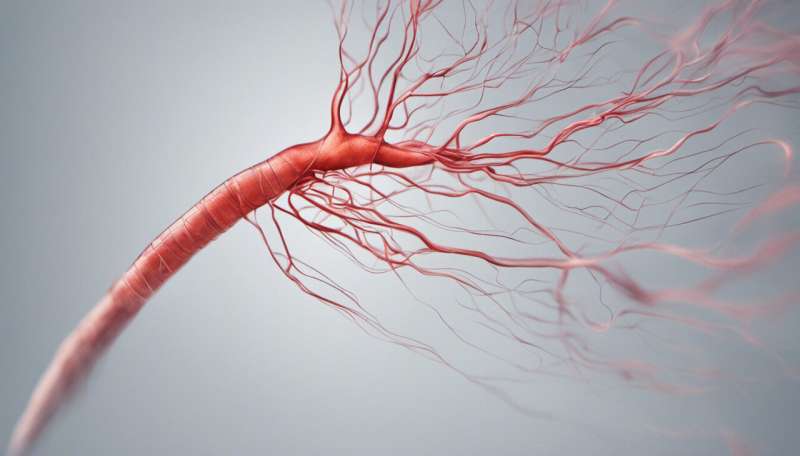Implantable heart pump offers new hope for end-stage heart failure patients

For the 60 million people around the world suffering from heart failure, a heart transplant is most often not an option. While implantable pumps called left ventricular assist devices (LVADs) are a promising new treatment option for this life-threatening condition, they have a high rate of associated complications. In fact, 4 out of 5 patients develop severe complications such as bleeding or strokes within 2 years after LVAD implantation.
French heart device company CorWave is developing novel membrane pump technology to reduce such complications and improve the care of heart failure patients. With partial support from the EU-funded Calypso project, CorWave has now presented a groundbreaking study on the performance of its implantable LVAD. Presented at the 41st Annual Meeting of the International Society for Heart and Lung Transplantation, this study—the first of its kind—demonstrates sensorless synchronization of a pericardial pump with the native heart for over 30 days.
Commenting on the 30-day results in a news item posted on the Business Wire website in April 2021, CorWave Senior Director for Translational and Clinical Research Trevor Snyder stated: “These results, which demonstrate sensorless synchronization of the CorWave pump over several million heartbeats, are unparalleled. By combining this unique capability with exceptional blood compatibility, the CorWave pump offers the hope to dramatically reduce the serious adverse events suffered by LVAD patients with current therapies, while restoring their quality of life and ability to engage in normal daily activities.”
Current implantable pumps vs. CorWave technology
LVAD-related complications most likely happen because today’s implantable pumps can’t reproduce the heart’s pulsating motion. CorWave’s pump stands out from other LVADs thanks to its breakthrough wave membrane technology inspired by the undulating movement of aquatic animals. Unlike current devices, the wave membrane pump is able to generate a natural pulse and mimics the blood flow rates and pressure of a healthy heart. In a January 2021 news item on “Business Wire,” CorWave’s CEO Louis de Lillers had described the heart pump as “the most advanced circulatory support system in the world.”
In the in vivo studies, the CorWave pump synchronized its pulsations with the native heart without the aid of sensors and successfully detected over 97 % of heartbeats. “This study is an important step towards making our next-generation heart pump available to patients with advanced heart failure,” remarked de Lillers in the April article. “Indeed, we demonstrated that our pump is able to work in synchrony with the native heart and can be a game-changer for the LVAD therapy. Congratulations to our team for achieving this milestone in the development of our breakthrough technology. With this study, they are redefining the state of the art in the field of mechanical circulatory support, by succeeding in doing what current devices cannot do.”
This is the first time that a miniaturized pericardial pump has achieved this synchronization. Prof. André Vincentelli of Lille University Hospital, France, commented: “The success of a pulsatile chronic in vivo study was one of the most awaited results. It is a sign of the maturity of a project whose next step will undoubtedly be the implantation in humans.”
Source: Read Full Article


